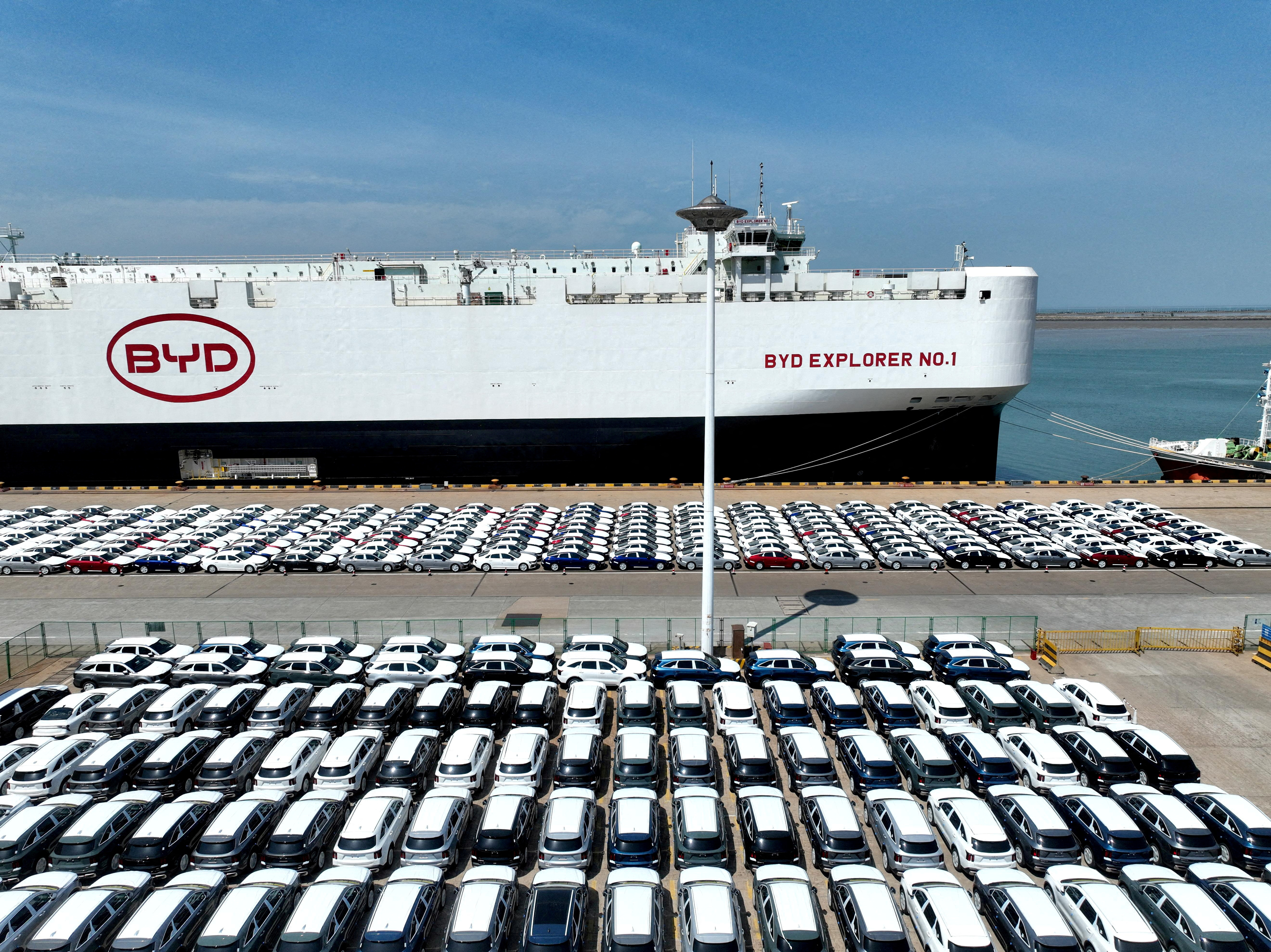BRUSSELS, July 4 (Reuters) – The European Union will impose tariffs of up to 37.6% from Friday on imports of electric vehicles made in China, EU officials said, ratcheting up tensions with Beijing in Brussels’ largest trade case yet.
There is however a four-month window during which the tariffs are provisional and intensive talks are expected to continue between the two sides as Beijing threatens wide-ranging retaliation.
The European Commission’s provisional duties of between 17.4% and 37.6% without backdating are designed to prevent what its president Ursula von der Leyen has said is a threatened flood of cheap EVs built with state subsidies.
Beijing said then it would take “all necessary measures” to safeguard China’s interests.
EU trade chief Valdis Dombrovskis said there is no basis for China to retaliate.
“Our aim is to … ensure fair competition and a level playing field,” he said in an interview with Bloomberg.
At the end of it, the Commission, the EU’s executive arm, could propose definitive duties, typically applying for five years, on which EU members would vote.
“Those talks with China are ongoing and indeed should a mutually beneficial solution emerge, we can also find ways not to apply at the end of the day the tariffs,” Dombrovskis said.
“But it is very clear this solution (would) need to solve that market distortion that we are currently having … and it needs to be market compliant.”
“We hope that the European and Chinese sides will move in the same direction, show sincerity, and push forward with the consultation process as soon as possible,” He Yadong, a ministry spokesperson, said.
HIGHER PRICES

Chinese EV makers will have to decide whether to absorb the tariffs or raise their prices to cover the billions of dollars in new costs at European borders.
“Chinese automakers are desperate to expand their sales outside of China since the domestic price war is taking its toll,” said Tu Le, founder of consultancy Sino Auto Insights.
Increased EV costs for European consumers would undermine the EU’s goal of being carbon-neutral by 2050, opponents of the tariffs say.
The prospect of duties may spur Chinese automakers to invest in factories in Europe, although labour and manufacturing costs are higher than in China.
“The negative effects of this decision outweigh any benefits for the European and especially the German automotive industry,” a Volkswagen spokesperson said in a statement.
Auto industry executives have warned against the tariffs, fearful of counter-measures that could affect the competitiveness of their cars in China where they are already struggling to keep up with a growing number of domestic competitors.
The Commission has estimated Chinese brands’ share of the EU market has risen to 8% from below 1% in 2019 and could reach 15% in 2025. It says prices are typically 20% below those of EU-made models.

WAVERING EU SUPPORT
European policymakers are keen to avoid a repeat of what happened with solar panels a decade ago, when the EU took limited action to curb Chinese imports and many European manufacturers collapsed. The EU launched its anti-subsidy investigation into Chinese EVs last October.
The issue will be put to EU members in an advisory vote in the coming weeks, the first official test of support in the Commission’s case, which is the first trade case of this kind.
The Chinese Passenger Car Association has said the tariffs will have a modest impact on the majority of Chinese firms.
Sign up here.
Reporting by Philip Blenkinsop, Charlotte Van Campenhout; Additional reporting by Victoria Waldersee in Berlin, Zhang Yan in Shanghai, Giulio Piovaccari in Milan, Gilles Gillaume and Richard Lough in Paris;
Writing by Josephine Mason
Editing by Catherine Evans and Barbara Lewis
Our Standards: The Thomson Reuters Trust Principles.

